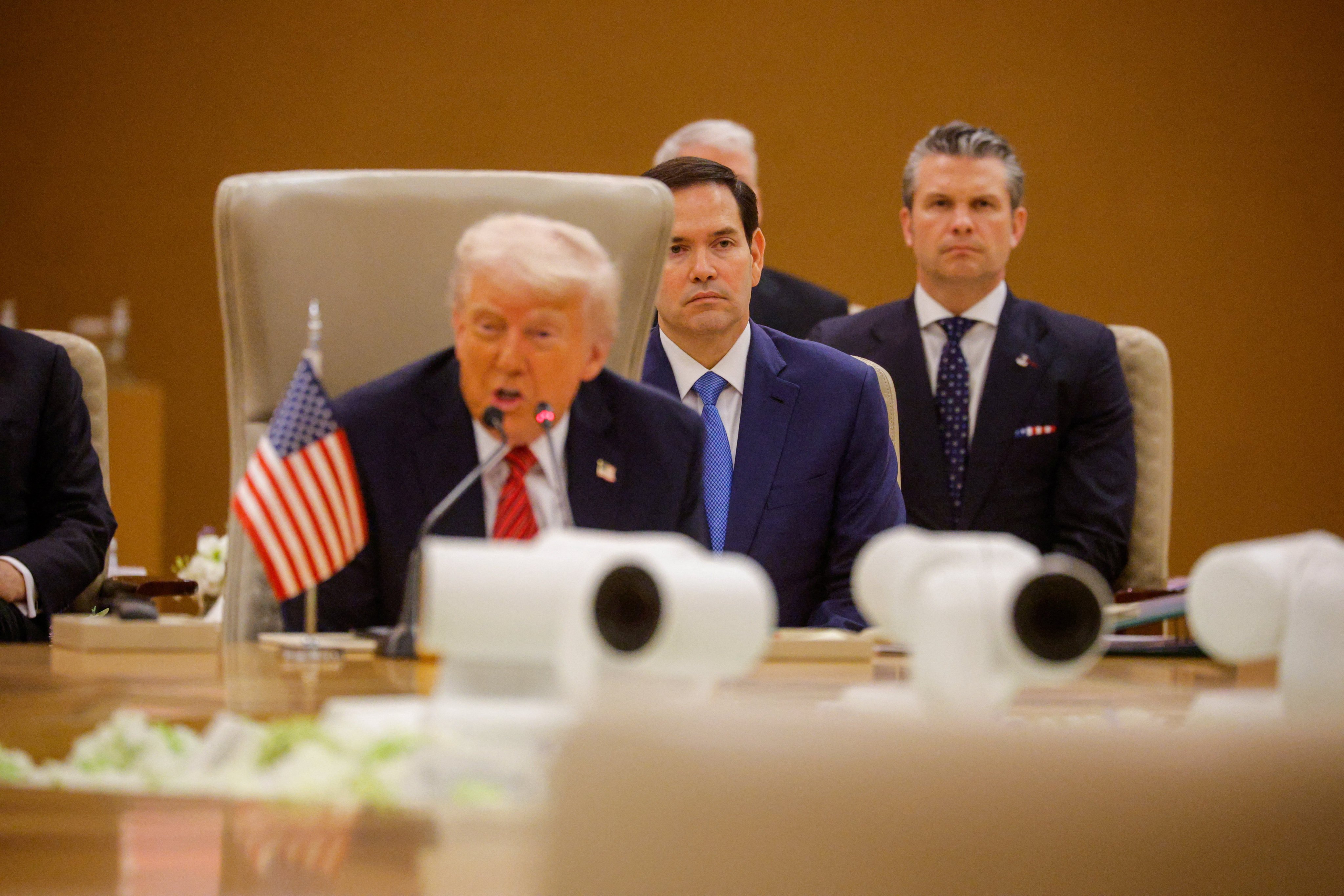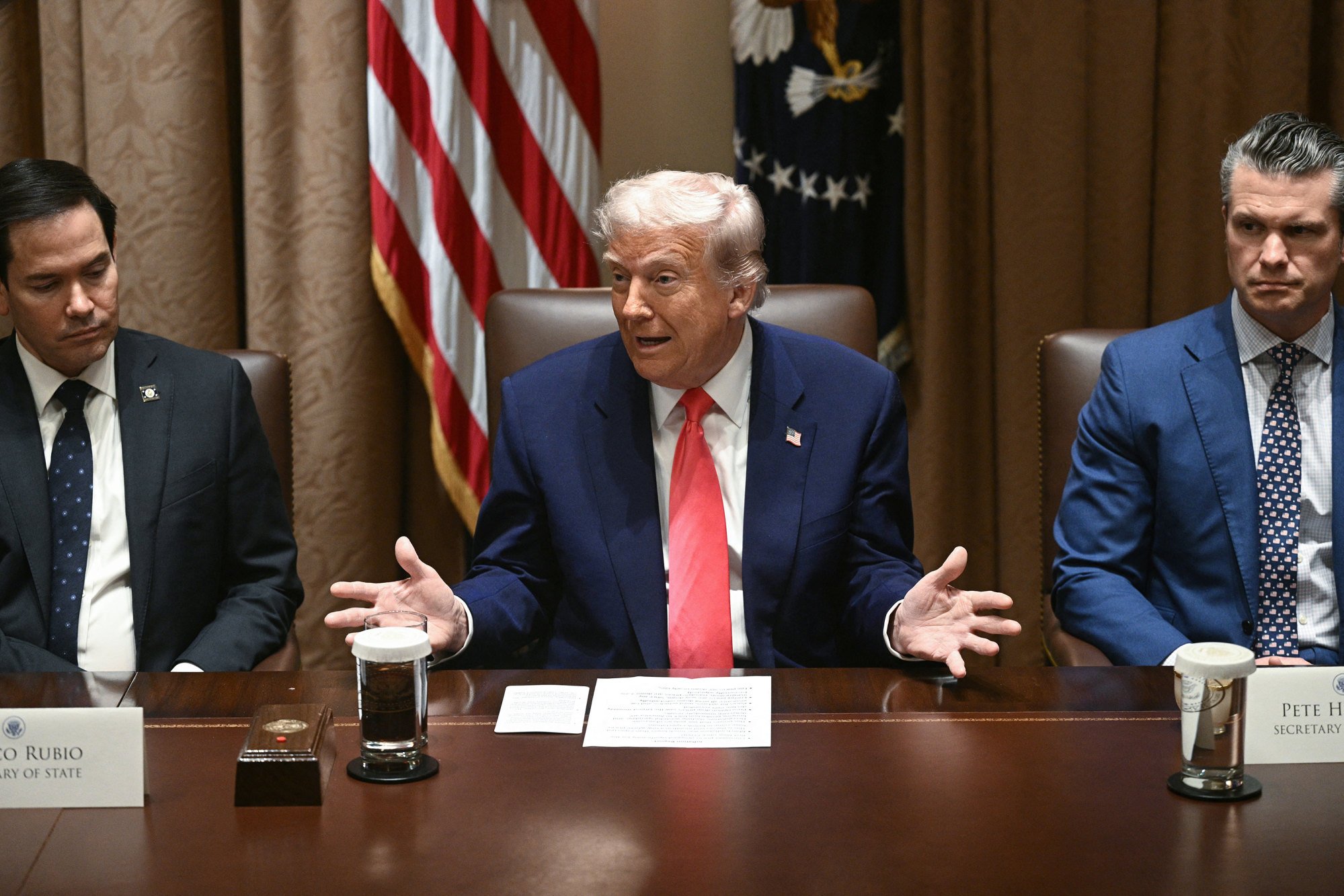Trump, Hegseth, Rubio: a triple threat to global stability – and Asia
The Trump administration has abandoned diplomacy for tariffs and threats, fracturing alliances and leaving Asean caught in the crossfire

The Indo-Pacific cannot afford to become collateral damage in America’s descent from diplomacy into dysfunction – a decline embodied by Defence Secretary Peter Hegseth’s sabre-rattling and Secretary of State and National Security Adviser Marco Rubio’s overreach.
At the recent Shangri-La Dialogue in Singapore, Hegseth stunned Asia’s defence and diplomatic elite by demanding that Indo-Pacific countries raise defence spending to 5 per cent of gross domestic product to “counter China”. The proposal was not just tone-deaf; it was combustible. No country in the region, save for outliers, comes close to that threshold. Japan, South Korea, Australia – and certainly Southeast Asia, where military spending averages just 1.5 per cent of GDP – are in no position to meet such a demand.
What Hegseth delivered was not a strategy, but an ultimatum. And in doing so, he risked catalysing the very action-reaction cycle Washington once sought to avoid: a region arming in anticipation, while Beijing accelerates its military posture in the South China Sea and the Taiwan Strait.
Asean, already reeling from intensifying great power rivalries, finds itself caught in the crossfire of an American foreign policy that confuses coercion with clarity, and escalation with influence. Former US president Richard Nixon and then-secretary of state Henry Kissinger wielded ambiguity to signal strategic intent. By contrast, Hegseth, Rubio and US President Donald Trump offer only confusion and contradiction – wielded like a cudgel, fracturing the very alliances they claim to reinforce.
In this environment, diplomacy is no longer the art of restraining power. It has become the art of surviving it.
A cabinet without guardrails
The Hegseth doctrine – if it can be called one – illustrates a deeper unravelling within Trump’s second administration: the near-total removal of institutional counterweights. The National Security Council is diminished. The State Department’s career corps, once the backbone of US diplomacy, has been hollowed out. What remains is a cabinet of loyalists, not strategists.
Enter Rubio.
Trump’s decision to appoint Rubio as both secretary of state and national security adviser is as historically audacious as it is strategically reckless. This is not the resurrection of Kissinger. It is the return of political patronage, dressed up as policy, thinly veiled in national security garb.
When Kissinger held both roles in 1973, it was under a president – however paranoid – who operated within a coherent framework of strategic realpolitik. Kissinger triangulated power between the United States, the USSR and China, crafting a deterrence architecture that maintained primacy without overextension.
Rubio has neither the gravitas of Kissinger nor the latitude. More crucially, he serves a president incapable of sustained strategic thought. Trump sees diplomacy as a zero-sum loyalty test and foreign policy as a spectacle for ratings. Rubio’s appointment is not a consolidation of influence – it is a crucible. He has been given the rope – more than enough to hang himself.

Madman vs madness
Trump’s foreign policy posture has often been likened to Nixon’s “madman theory” – the notion that perceived irrationality could be a strategic asset. Nixon bombed the Ho Chi Minh Trail to send signals of resolve. Trump, by contrast, has not applied the madman theory – he has embodied actual strategic madness.
During his first term, tariffs were imposed indiscriminately on China and allies alike – Canada, the EU, Japan, South Korea. In his second term, these impulses have intensified. Trade wars are back, paired with visa crackdowns and an overt hostility to multilateralism. Meanwhile, Rubio’s own hardline instincts on China, Cuba and Venezuela now collide with the whims of a president who resents being overshadowed – and who cannot be constrained.
Already, Rubio’s reforms – particularly for US visa policies and educational exchanges – have triggered a global backlash. Elite universities, once engines of American soft power, are witnessing a collapse in international student applications. Foreign governments, from Germany to Malaysia, increasingly view the US as an unreliable academic and diplomatic partner.
What we are witnessing is not the restoration of American primacy – but its accelerated erosion
Inside the Republican Party, scepticism is growing. Some see Rubio’s dual role as overreach; others see it as a sop to the donor class. A reported US$100 million contribution by Miriam Adelson, the widow of the late casino tycoon Sheldon Adelson, to Trump’s election campaign last year underscores what many suspect: that Rubio’s rise is a transaction, not a testament to merit or vision.
Beneath it all lies the administration’s central flaw: there is no Trump doctrine. No new Asia strategy. No Indo-Pacific vision. Only tariffs, threats and the assumption that military pressure can substitute for statecraft.
Rubio’s titles offer no protection from a president who contradicts his own administration in the same news cycle. In the final analysis, he is not a policymaker. He is a place holder. A lightning rod for the failures of a chaotic administration. As the empire wobbles, it is not being righted – it is being rebranded as strength.
Rubio may hold the titles. But Trump holds the detonator.
What we are witnessing is not the restoration of American primacy – but its accelerated erosion. Hegseth threatens the region with impossible demands. Rubio is set up to fail. And Asean is left to navigate the fallout of a superpower collapsing in on itself.
The rope has been handed out. And the curtain is beginning to fall.
Phar Kim Beng, PhD, is a Professor of Asean Studies at the International Islamic University, Malaysia.